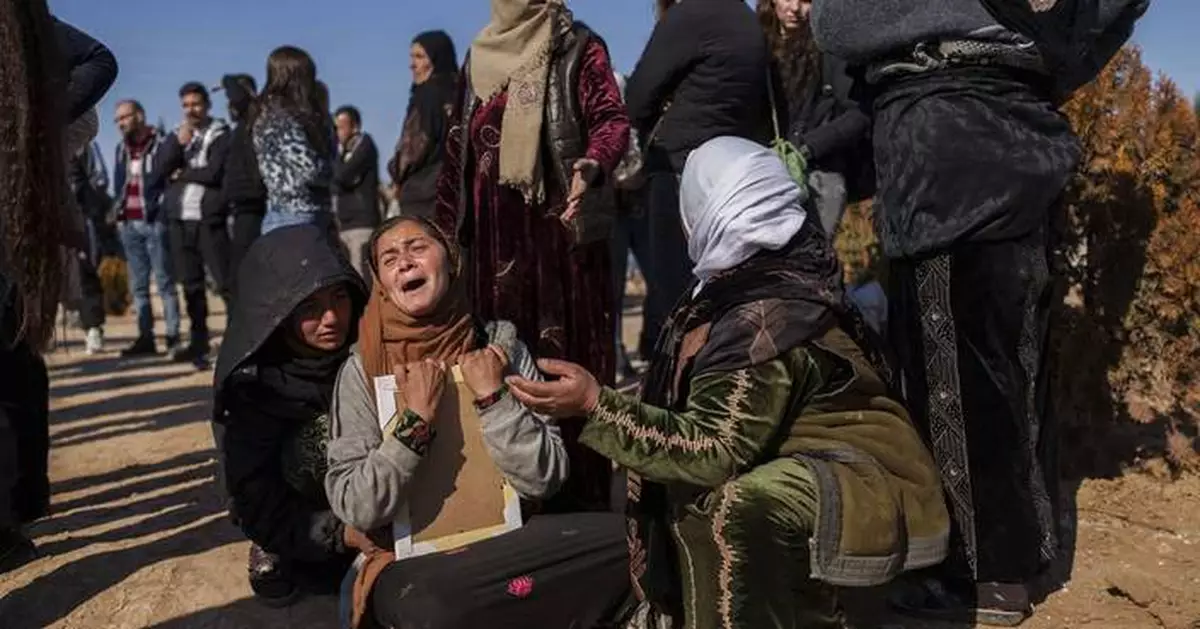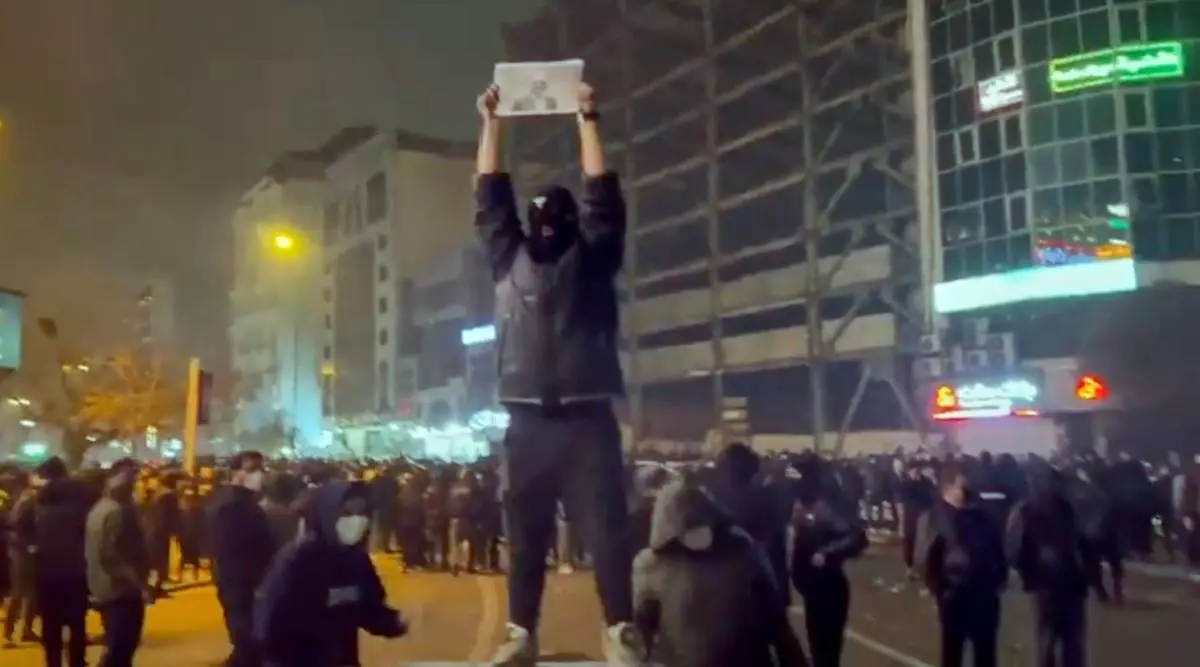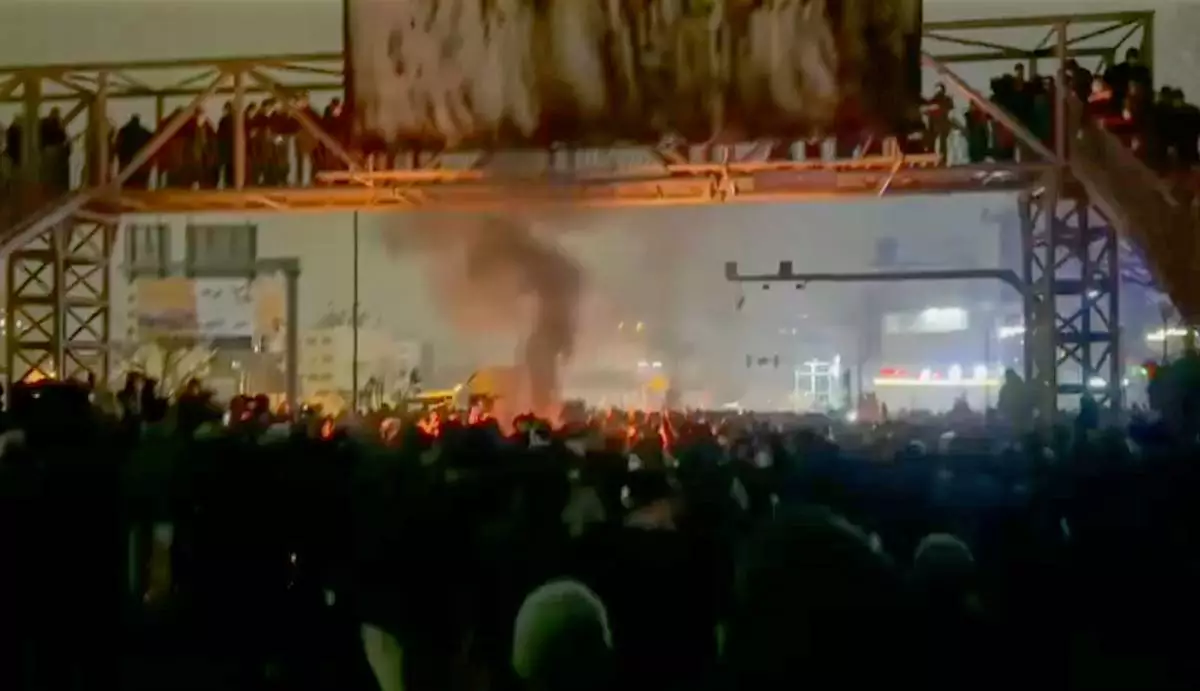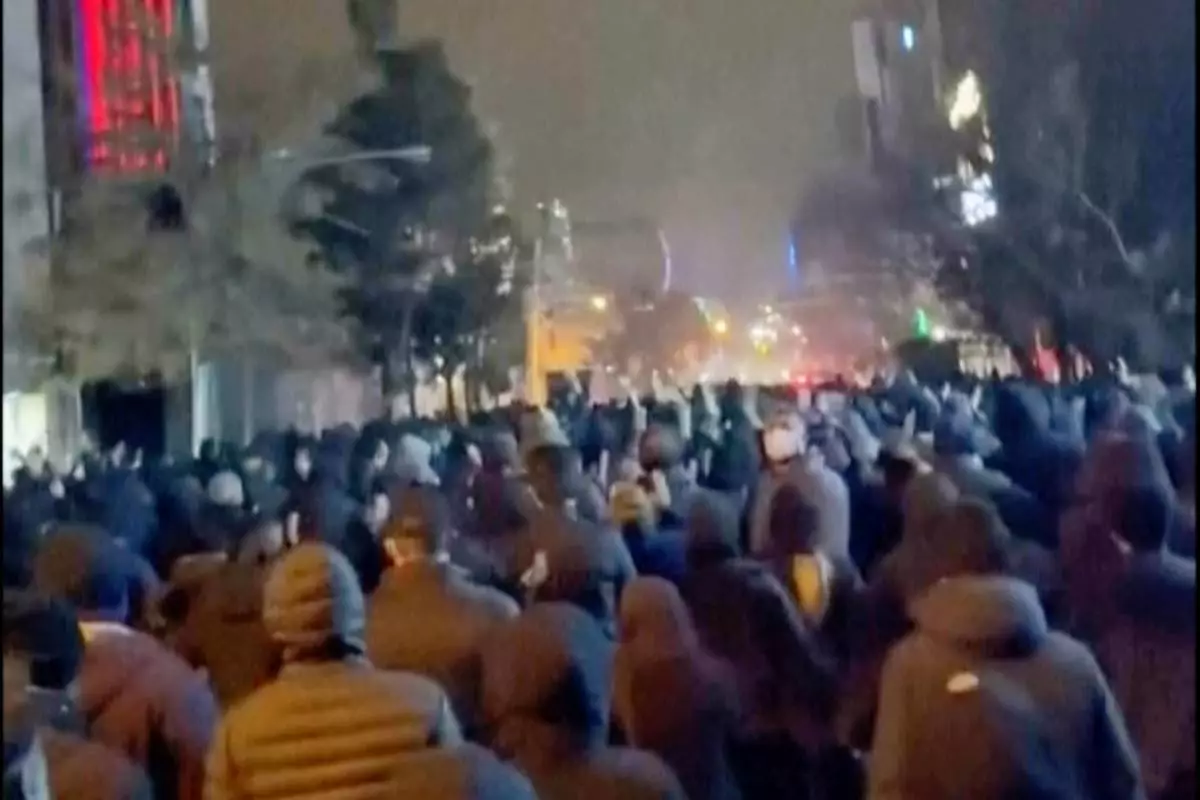QAMISHLI, Syria (AP) — Kurds in Syria were marginalized during five decades of Assad family rule, with many denied citizenship and wrongly described as Arabs. Now they are seizing the chance during the post-Assad transition to keep the cultural gains they made in the northeast enclave they carved out during the country's civil war.
Mothers can now give children Kurdish names. The Kurdish language is taught in schools. The new year, Nowruz, can be celebrated openly. The Kurds, one of the world’s largest populations without a state of their own, have been feeling some control over their lives and want to make that permanent with a new government in power.
But that depends on Syria’s new leaders, and the outcome of an ongoing conflict between the Kurds and Turkish-backed rebels that’s been overshadowed by the dramatic shift from Assad rule. Two months of fighting have left scores dead on both sides.
“We have made all these gains. There is no way we will abandon them, even over our bodies and the bodies of our children,” said Amira Ali, a Kurdish woman from the northeastern city of Hassakeh whose husband is a member of the local police force known as, “Asayish," the Kurdish term for security.
Shortly after the uprising against the Assad government began in 2011, the Kurds filled the vacuum created by the withdrawal of government forces from wide areas of Syria's northeast. The main Kurdish-led force now controls about 25% of Syria. An autonomous authority runs day-to-day affairs of the region that many Kurds call “Rojava Kurdistan,” or “western Kurdistan.”
Now Kurdish leaders are negotiating with the new authorities in Damascus on the future of their people, who made up 10% of the country’s prewar population. They don’t want full autonomy with their own government and parliament; they want decentralization, room to run their day-to day-affairs.
The new authorities, however, are allied with the Turkish-backed armed groups that launched an offensive against the Kurds in December during the chaos around Assad’s fall. The fighting between the Kurds and the coalition known as the Syrian National Army has forced about 100,000 people to flee their homes.
The conflict has major implications for Syria’s future as its new government, led by the Hayat Tahrir al-Sham former Islamist rebel group, tries to consolidate control and begin rebuilding after nearly 14 years of civil war.
Mazloum Abdi, commander of the U.S.-backed Syrian Democratic Forces, the main Kurdish-led force, said the country should be a secular, civil and decentralized state that treats all citizens equally. Western countries have called on Syria's new rulers to respect minorities and women's rights.
Abdi recalled the Syrian identity cards that described all its citizens as “Syrian Arab citizens,” including non-Arabs like the Kurds. They want it to be changed to “Syrian citizens.”
“Kurds were persecuted by previous authorities,” he said. He wants anti-Kurd laws to be abolished.
Abdi and others point out that the Kurds played an important role in defeating the Islamic State group as it rampaged across Syria and neighboring Iraq for years during Syria’s civil war.
The Kurdish-led SDF was formed to fight the extremists, and in 2019, SDF fighters captured the last sliver of land they held, the eastern Syrian village of Baghouz. The SDF and other members of the U.S.-led coalition continue the fight against IS sleeper cells.
The SDF lost thousands of its members in fighting IS, as well as against the armed factions backed by Turkey. Ankara regards the SDF as an extension of the Kurdistan Workers’ Party, or PKK, a Kurdish separatist militant group it has designated a terrorist organization.
Turkey has launched four incursions into northern Syria since 2016, capturing wide areas along its borders and displacing hundreds of thousands of people. It is not clear whether those incursions will stop after Assad's fall.
The streets in northeast Syria are decorated with photographs of fallen Kurdish fighters.
“God willing, the blood of these martyrs will not be wasted,” said Amina Hussein, 57, as she lit incense on the grave of her son Dersim Sheikhi, killed in 2015 while fighting IS.
“Kurds have achieved a lot, and we should preserve this,” she said on a cold morning in the SDF’s Martyrs Cemetery, where hundreds of men and women are buried.
The offensive by the Turkish-backed armed groups is the latest challenge to Kurdish gains.
The 70-year-old Goulieh Abdu has been displaced twice in the past two months by the fighting. Now she shelters in a compound once run by forces loyal to Assad after SNA shelling forced her to flee to the city of Qamishli.
“I swear to God that displacement has killed us,” Abdu said, sitting on a mattress next to a diesel heater on a cold January morning. “What did we do to be punished this way?”
Another woman, Elham Horo, fled Tel Rifaat with her children and grandchildren in the SNA offensive.
“All what we have left is our souls. If they want to take it, then let them do it,” Horo said as she sat with her grandchildren on the floor of a classroom in Qamishli now used as a shelter for the displaced.
In Tel Rifaat, now seized by the SNA, its fighters blamed Kurdish gunmen for displacing Arabs from the town over the years. Arab residents said they could now return to their homes.
“They left us nothing,” said resident Muhammad Kabso, 42, who said he returned home to find that the Kurd who had been living there had burned his cherished olive and pomegranate trees.
Both the SDF and the authorities in Damascus have been sending positive signals about their talks on the future of Syria's northeast and the Kurds. Authorities have said the Kurds were unjustly treated under Assad.
“We will work together to build a country in which everyone feels equality and justice,” Syria's Foreign Minister Asaad al-Shibani recently posted on X — in Kurdish.
Associated Press journalist Ghaith Alsayed contributed to this report from Tel Rifaat, Syria.
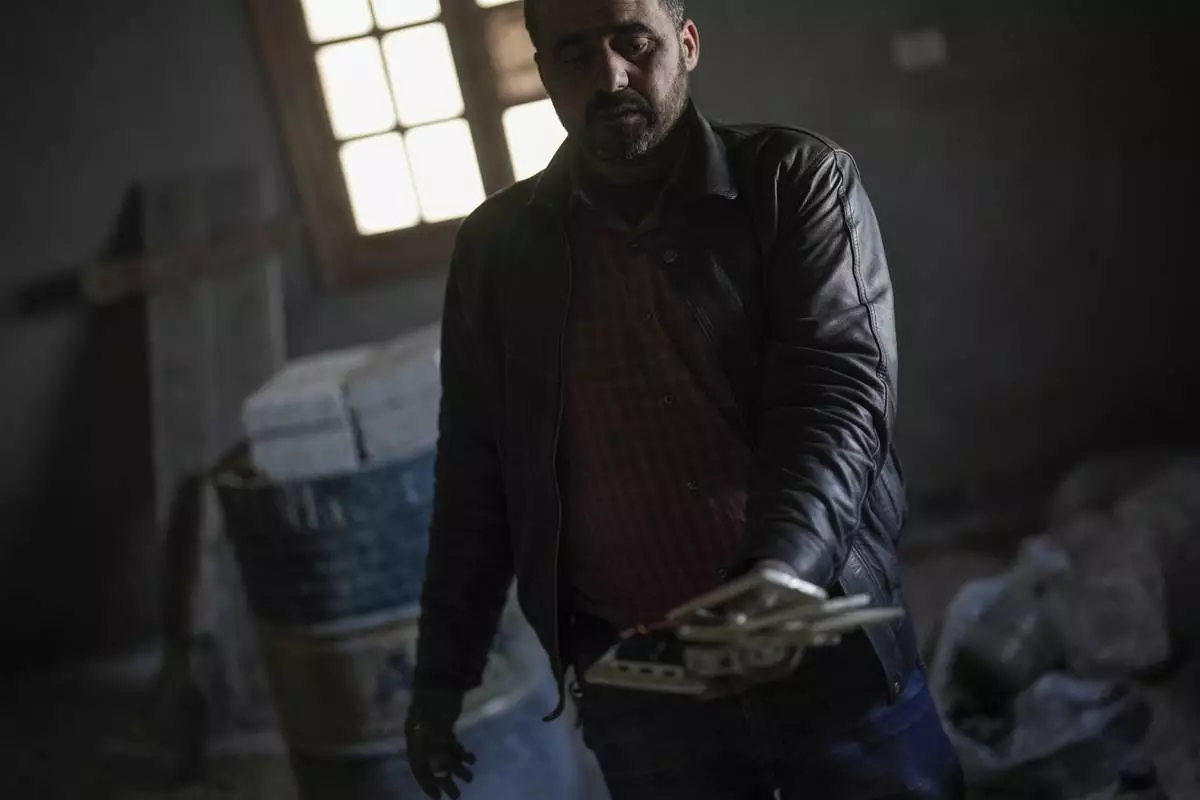
Muhammad Kabso, 42, shows damaged tools left behind by the Kurds who had been living in his house in the town of Tel Rifaat in the northern Aleppo countryside, Syria, on Tuesday, Jan. 28, 2025. (AP Photo/Khalil Hamra)
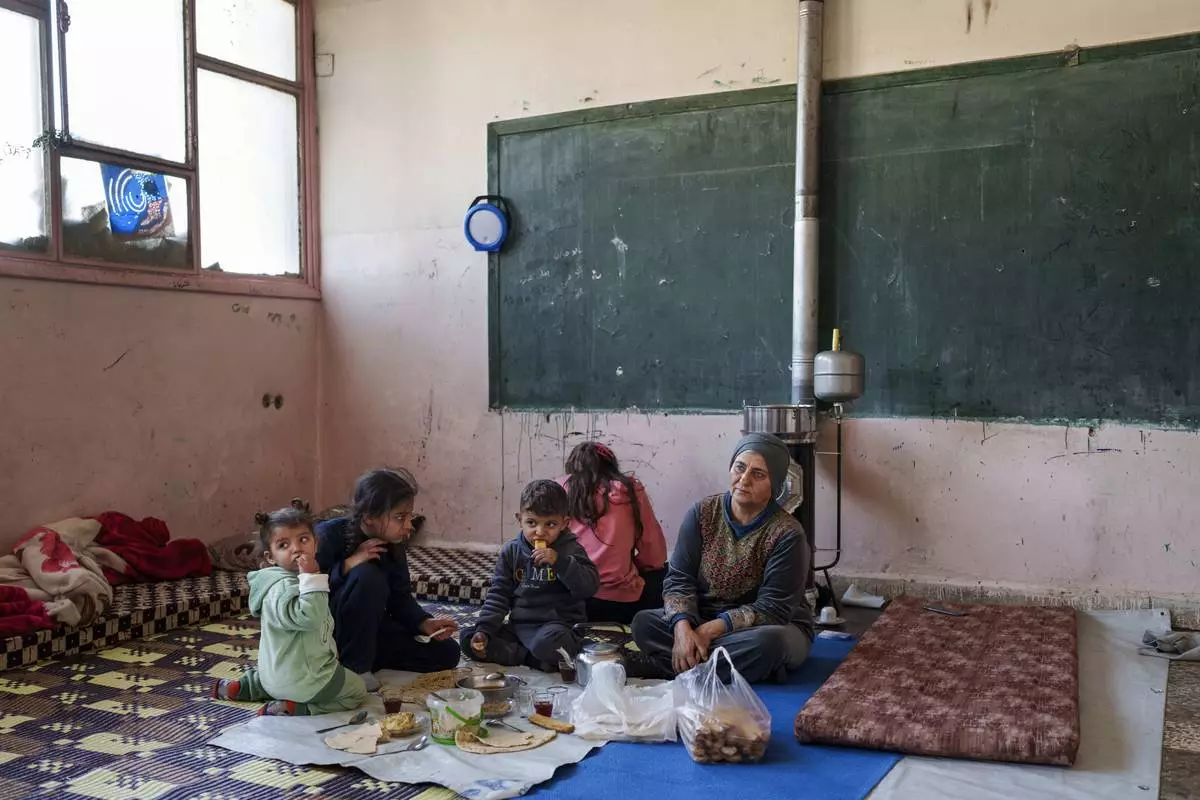
Internally displaced woman Elham Horo, right, and her family take shelter at an old school in the northeastern Syrian city of Qamishli, which is controlled by the U.S.-backed, Kurdish-led Syrian Democratic Forces, Tuesday, Jan. 28, 2025. (AP Photo/Bernat Armangue)
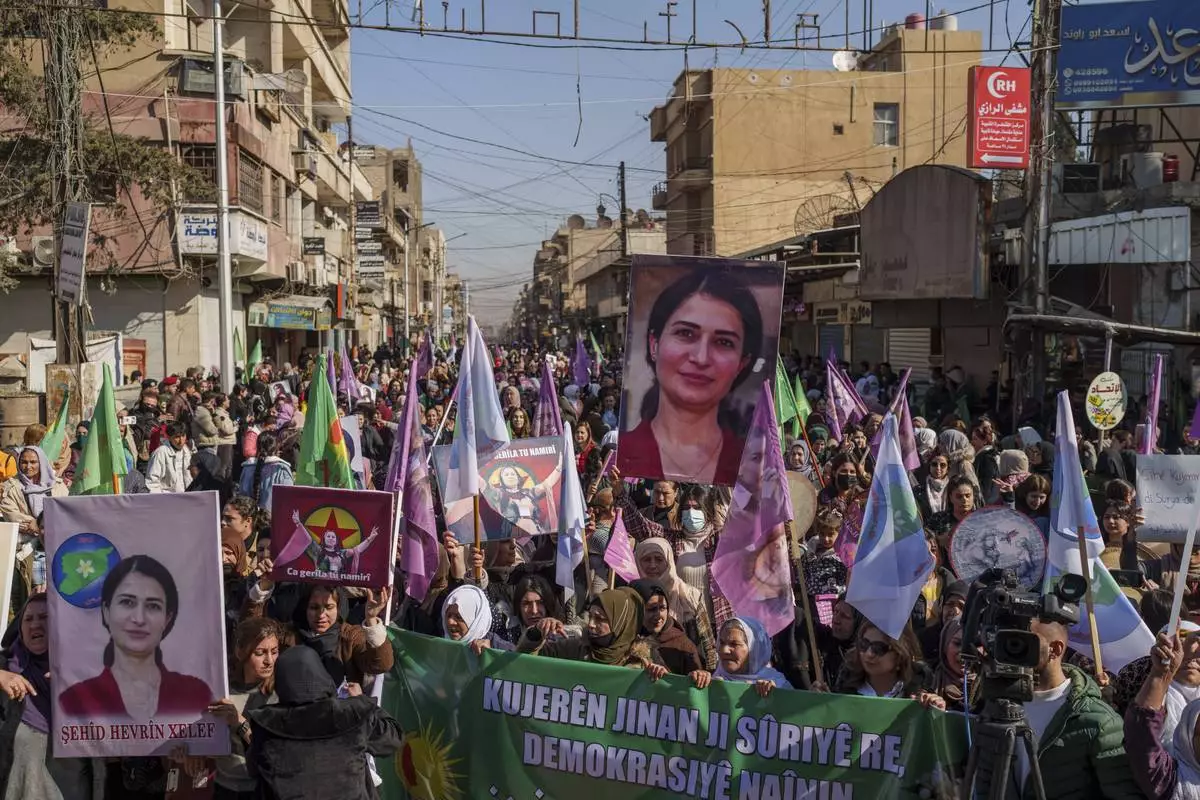
Women march during a rally to mark the 2019 killing of Kurdish politician Hevreen Khalaf by Turkey-backed opposition fighters, in the northeastern Syrian city of Qamishli, Saturday, Feb. 1, 2025. (AP Photo/Bernat Armangue)
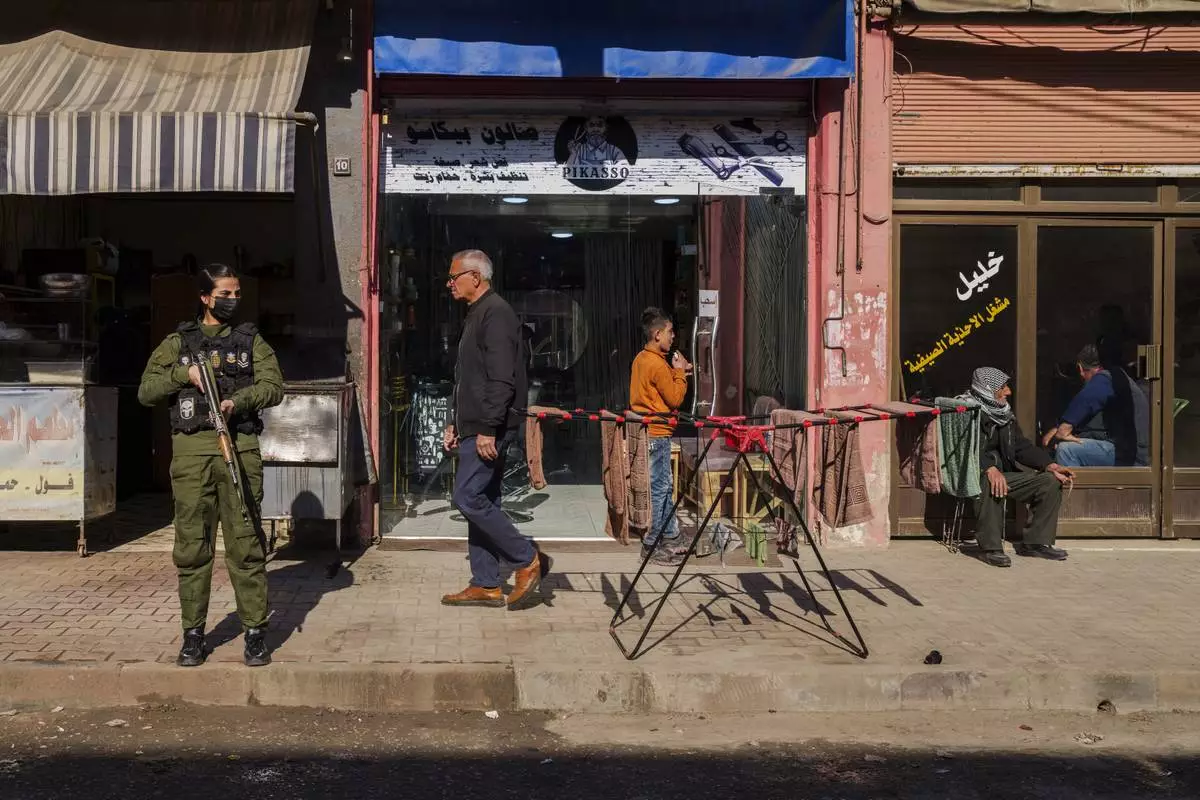
A Syrian Democratic Forces member stands guard in the northeastern Syrian city of Qamishli, Saturday, Feb. 1, 2025. (AP Photo/Bernat Armangue)
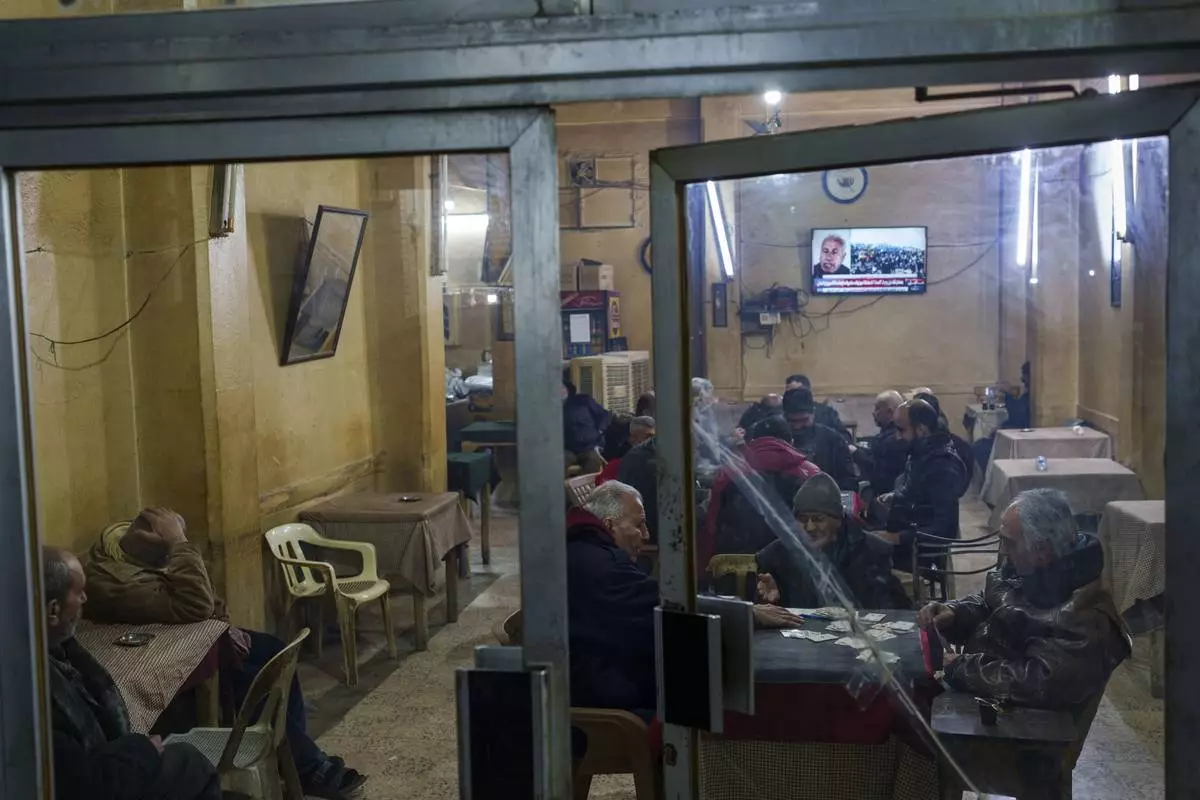
Men play cards at a coffee shop in the northeastern Syrian city of Qamishli, which is controlled by the U.S.-backed, Kurdish-led Syrian Democratic Forces, Tuesday, Jan. 28, 2025. (AP Photo/Bernat Armangue)
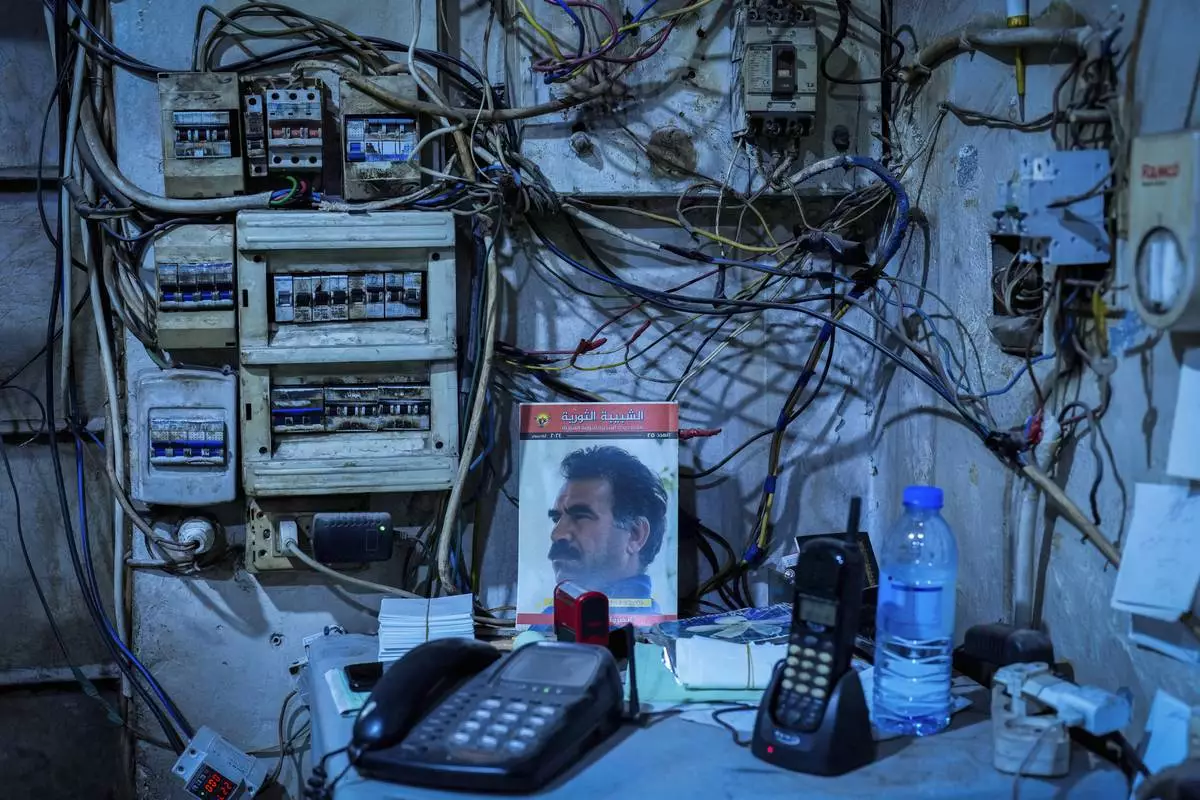
A picture Abdullah Ocalan, the imprisoned leader of Turkey's banned Kurdistan Workers' Party, or PKK, is displayed inside a petrol station in the northeastern Syrian city of Qamishli, Sunday, Jan. 26, 2025. (AP Photo/Bernat Armangue)
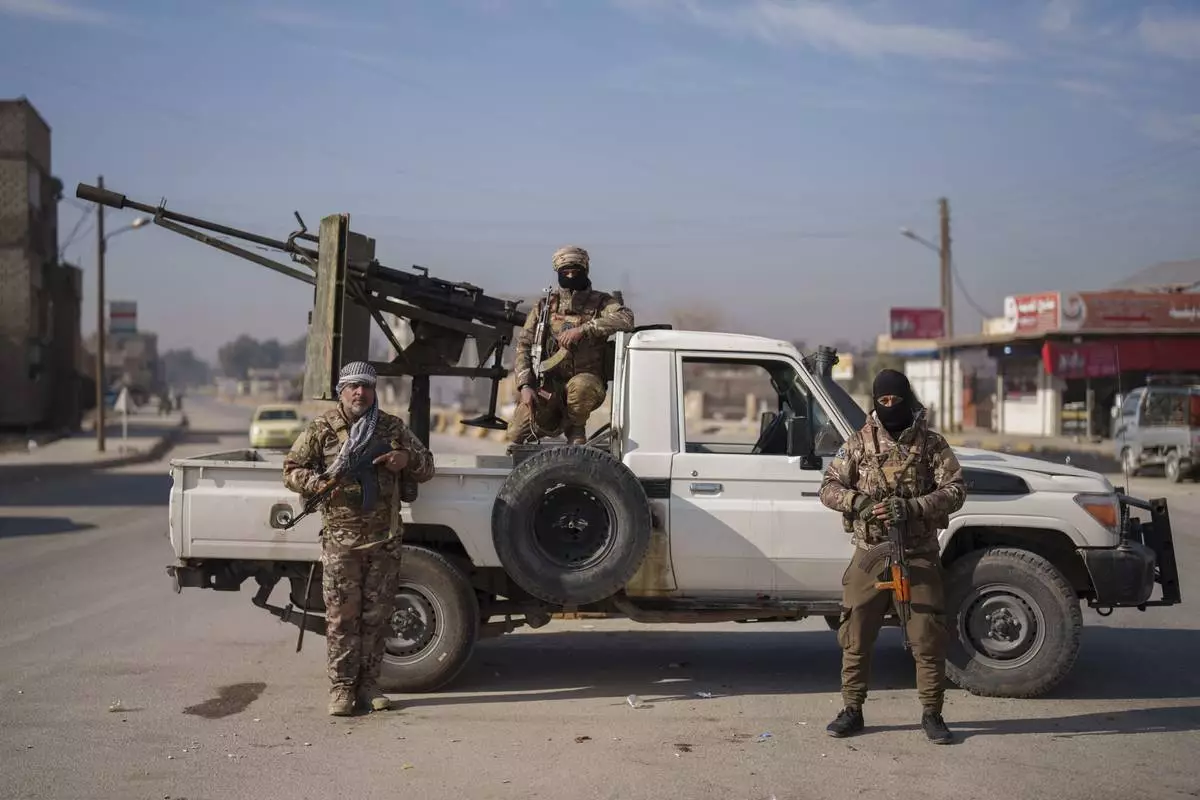
Members of the Syrian Democratic Forces pose for a portrait at a checkpoint in the northeastern city of Hassakeh, Friday, Jan. 31, 2025. (AP Photo/Bernat Armangue)
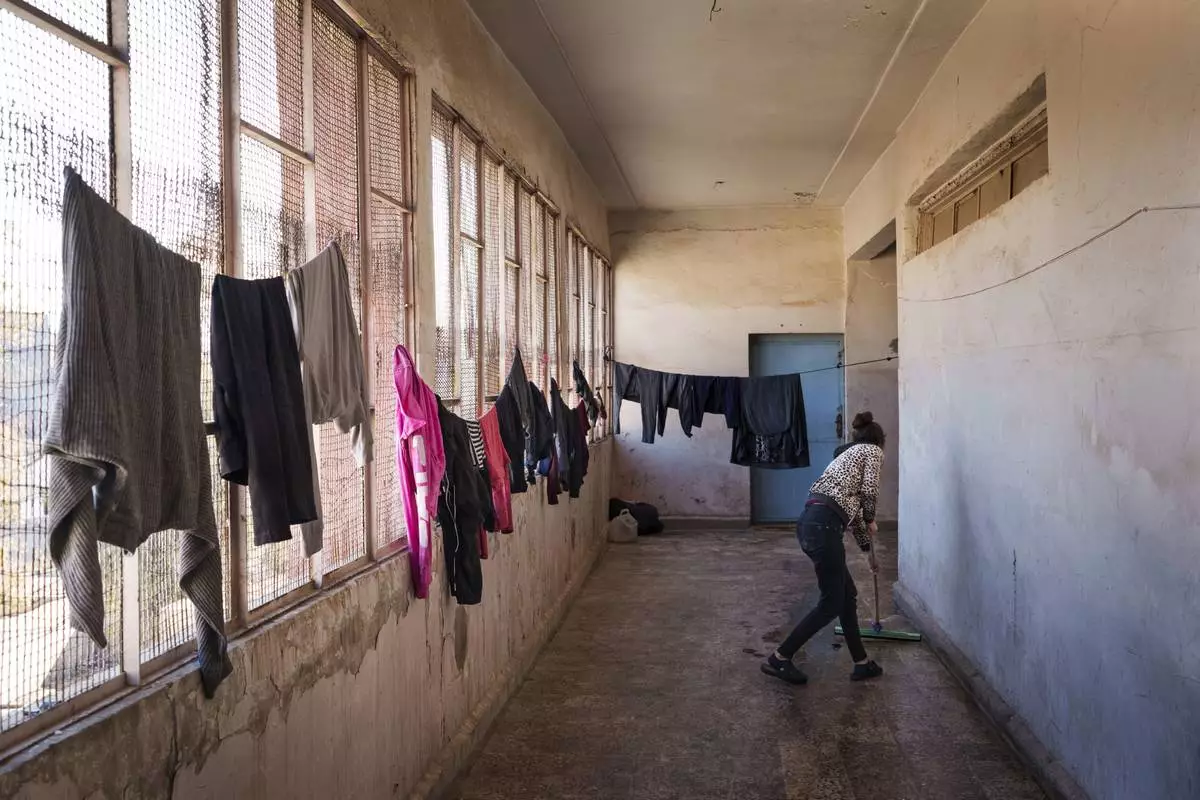
An internally displaced person cleans the hallway of an old school used as temporary shelter in the northeastern Syrian city of Qamishli, which is controlled by the U.S.-backed, Kurdish-led Syrian Democratic Forces, Tuesday, Jan. 28, 2025. (AP Photo/Bernat Armangue)
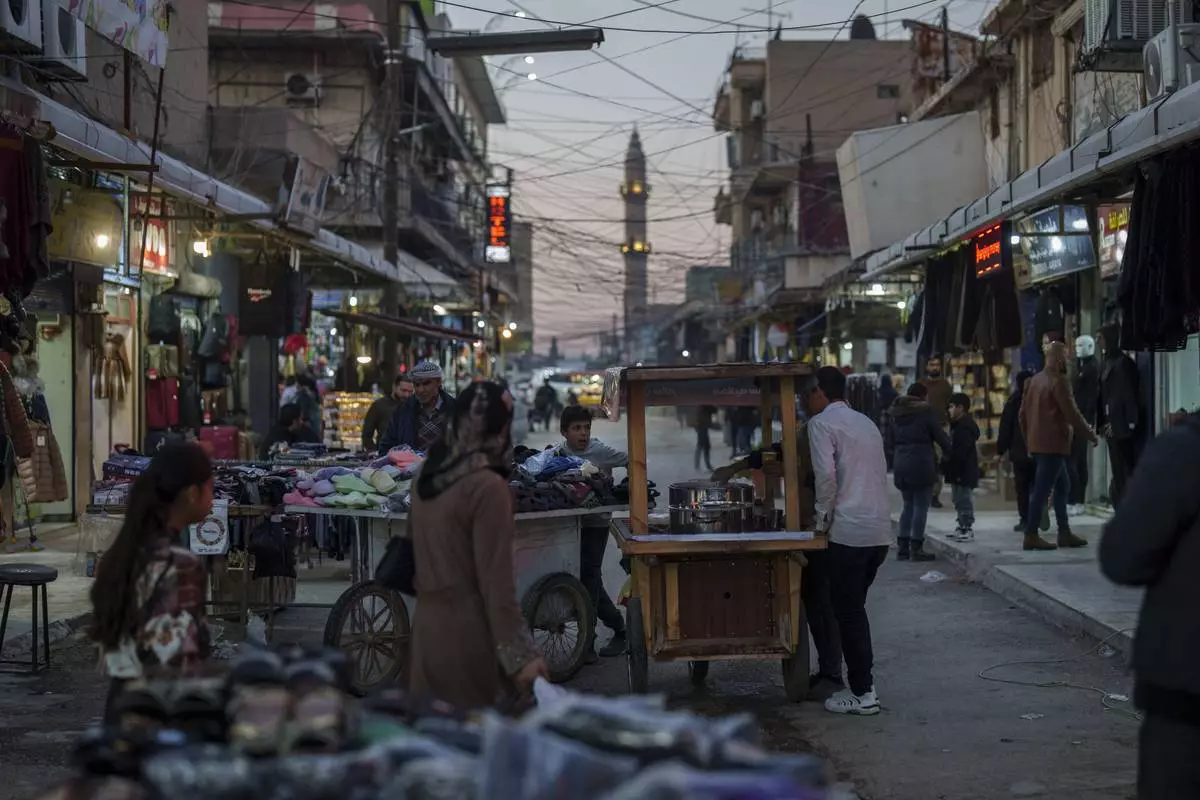
People stroll through a local market in the northeastern Syrian city of Qamishli, which is controlled by the U.S.-backed, Kurdish-led Syrian Democratic Forces, Tuesday, Jan. 28, 2025. (AP Photo/Bernat Armangue)
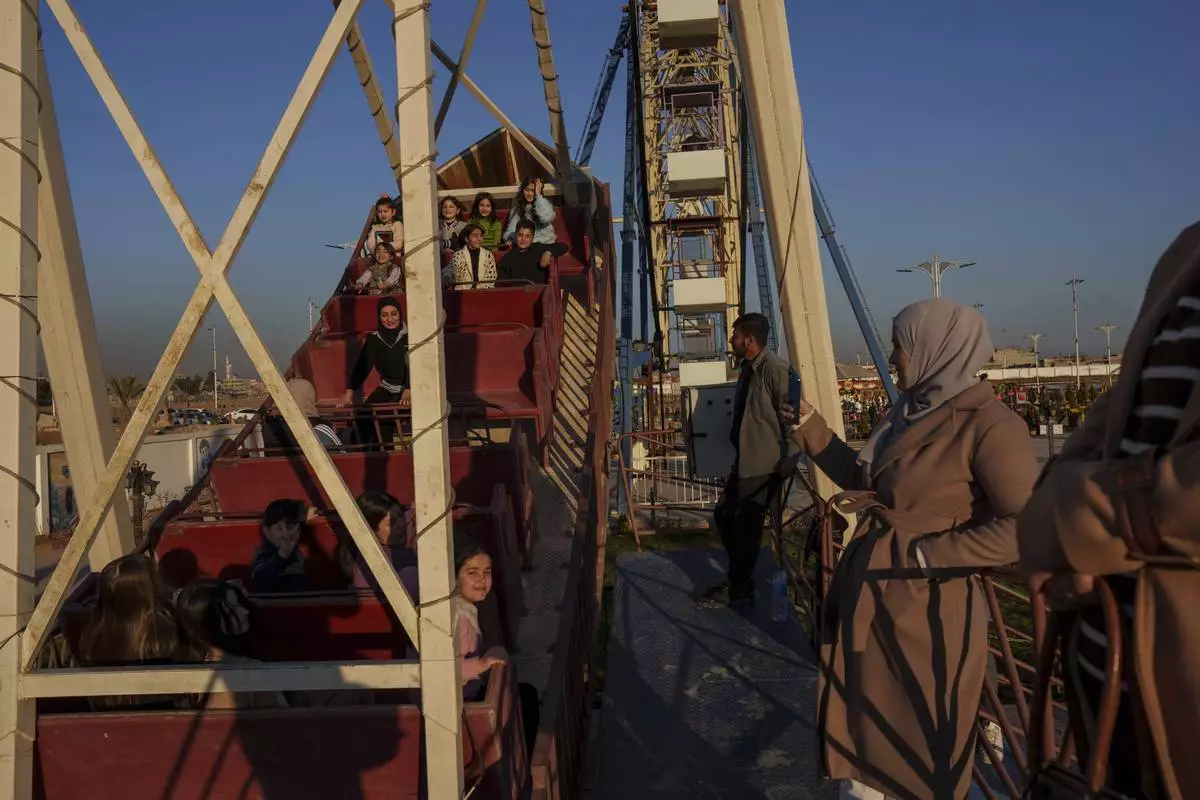
Families enjoy an amusement park in the northeastern Syrian city of Qamishli, which is controlled by the US-backed and Kurdish-led Syrian Democratic Forces, Saturday, Feb. 1, 2025. (AP Photo/Bernat Armangue)
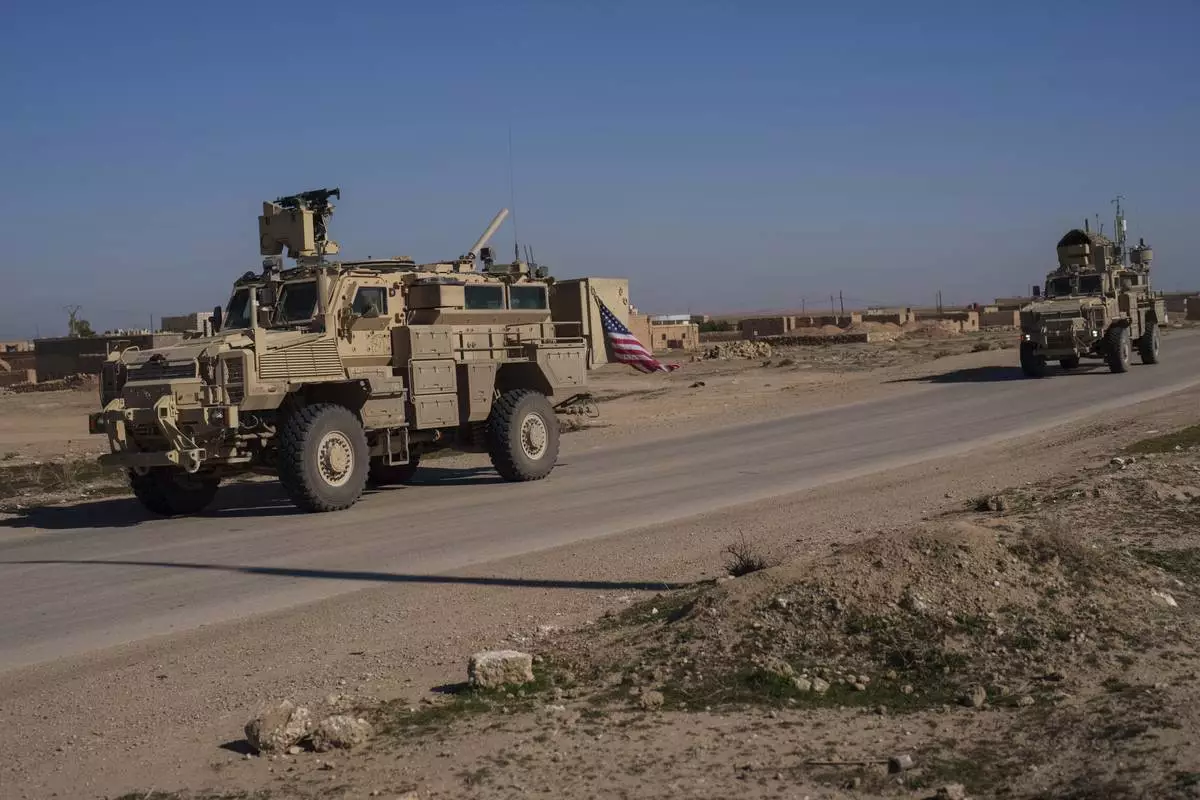
A U.S. military convoy drives along a road in northeastern Syria's Hasakeh province, Thursday, Jan. 30, 2025. (AP Photo/Bernat Armangue)
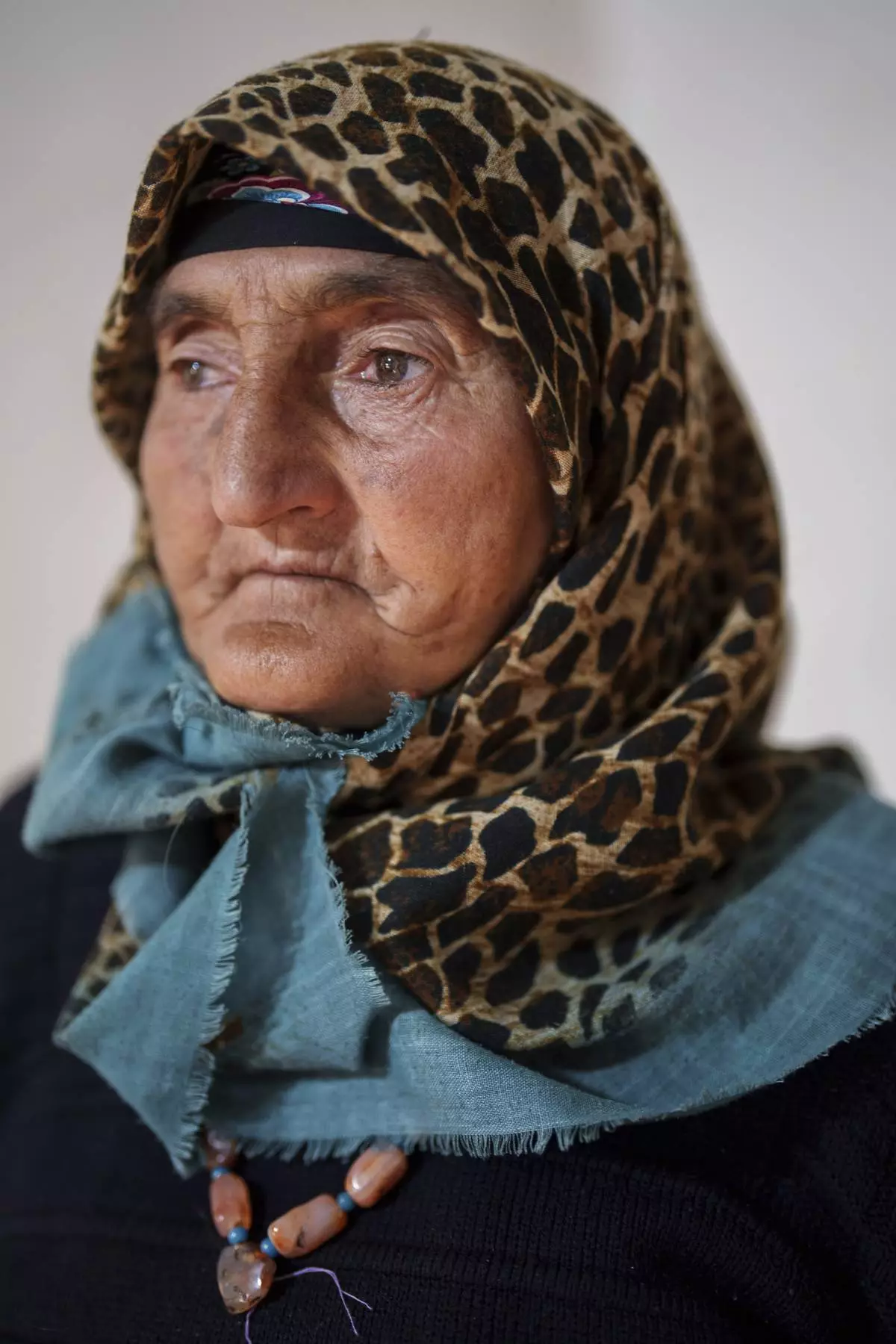
Goulieh Adbu, 70, who is internally displaced, poses for a portrait at an old school used as a temporary shelter in the northeastern Syrian city of Qamishli, which is controlled by the U.S.-backed, Kurdish-led Syrian Democratic Forces, Tuesday, Jan. 28, 2025. (AP Photo/Bernat Armangue)
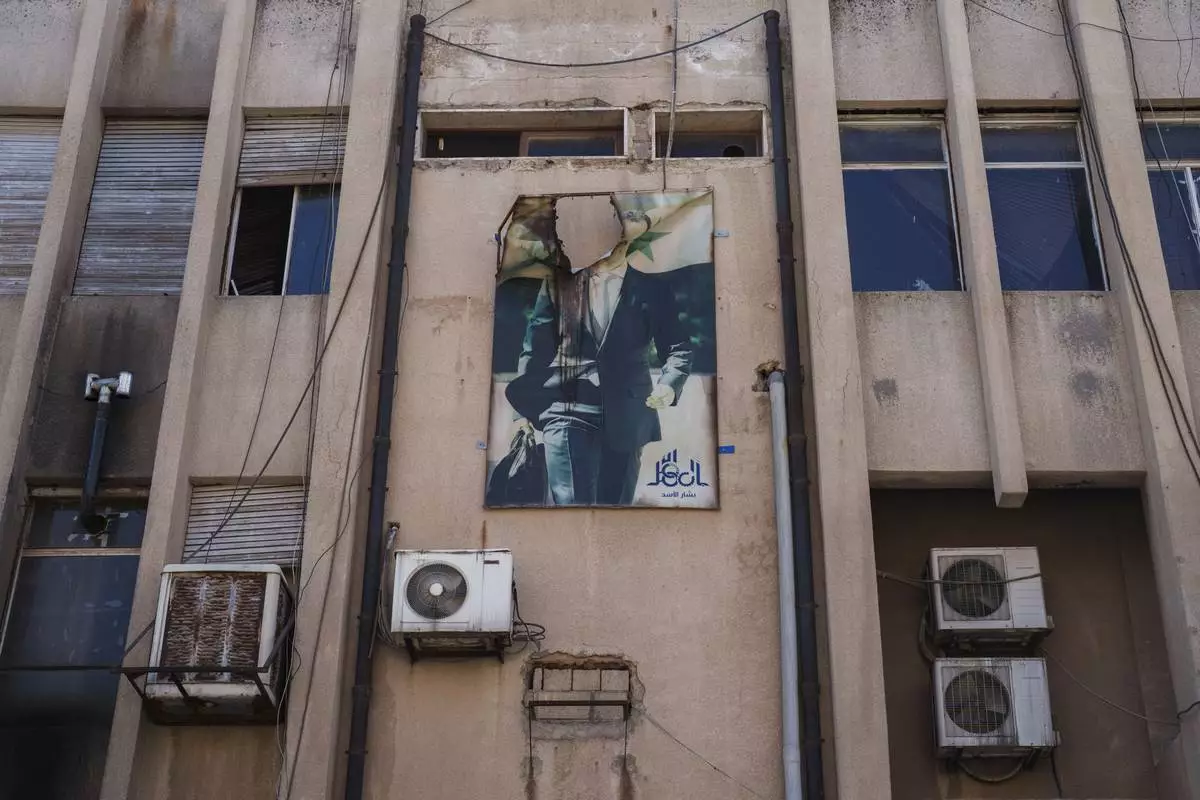
A damaged poster of ousted Syrian President Bashar Assad hangs on the facade of a building in the northeastern Syrian city of Qamishli, which is controlled by the U.S.-backed, Kurdish-led Syrian Democratic Forces, on Tuesday, Jan. 28, 2025. (AP Photo/Bernat Armangue)
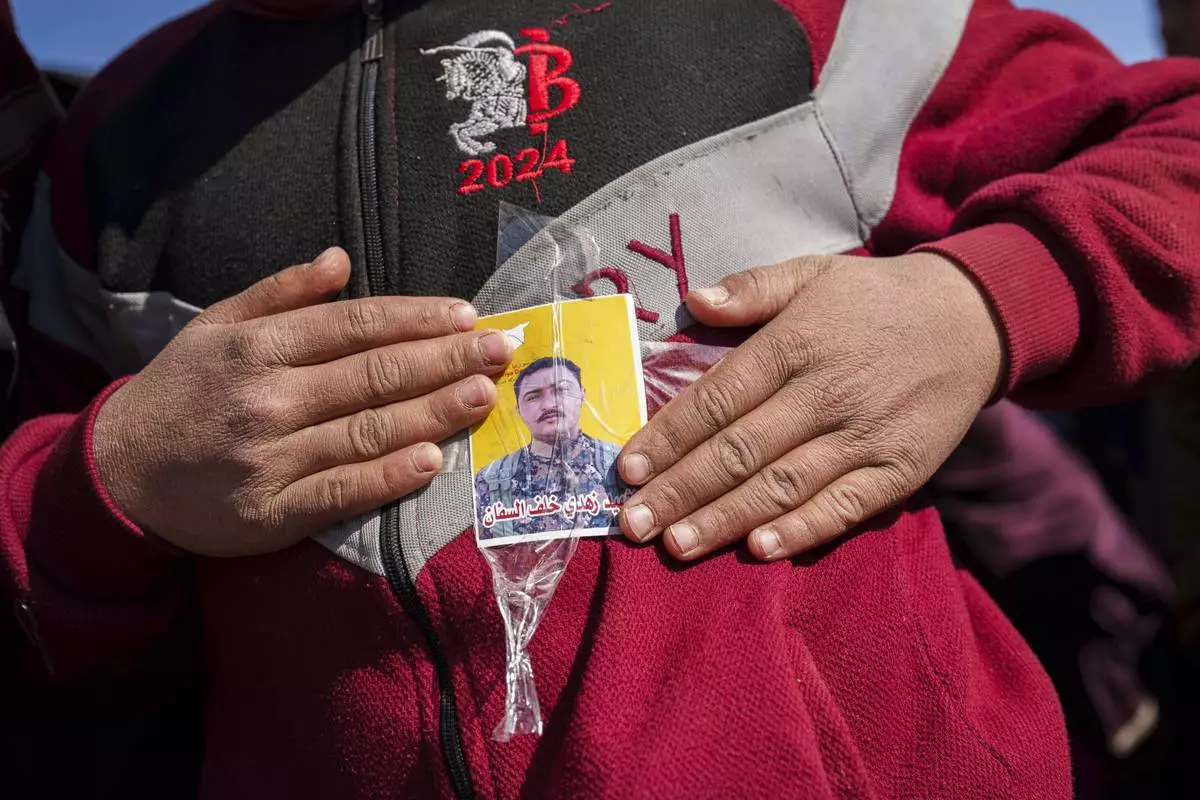
A boy holds a photo of Zuhdi Saffan, a Syrian Democratic Forces fighter killed by a Turkish-backed militia, during the funeral of four Syrian Democratic Forces fighters in the village of Daoudiya in northeastern Syria's Hassakeh province, Wednesday, Jan. 29, 2025. (AP Photo/Bernat Armangue)
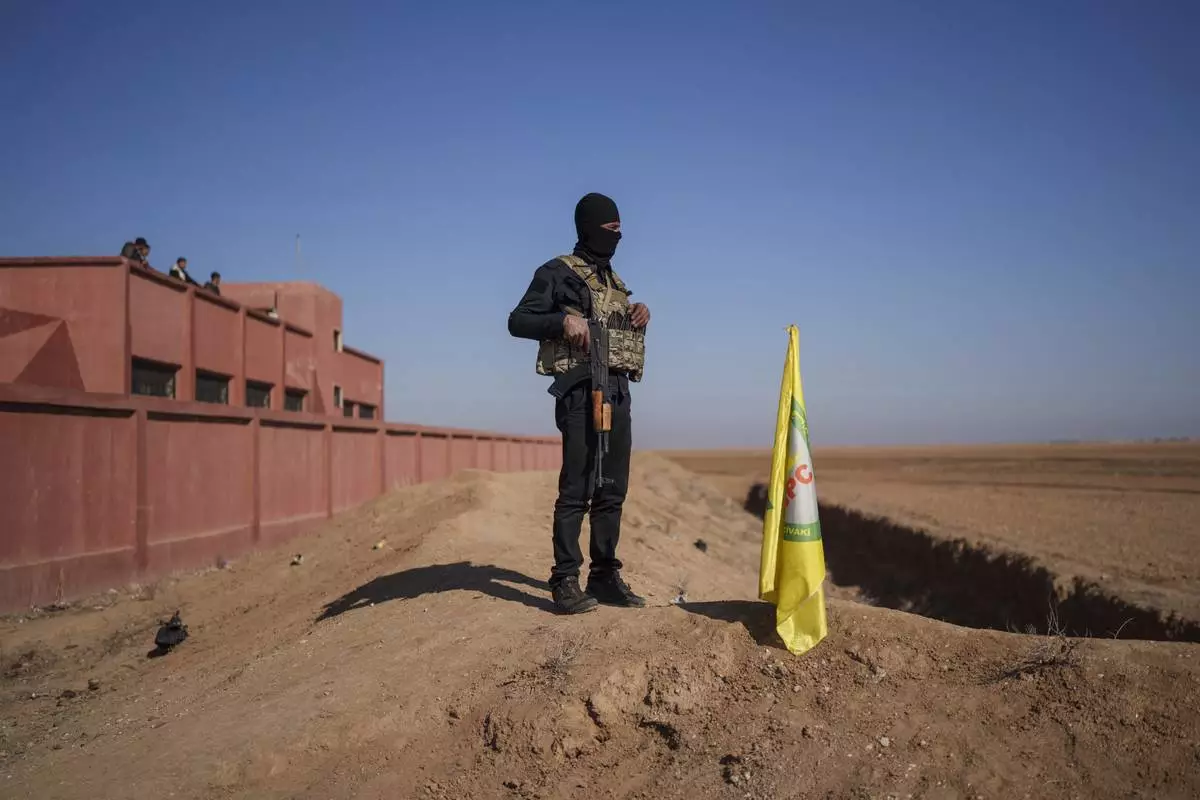
A Syrian Democratic Forces fighter secures the road leading to the cemetery during the funeral of his comrades in northeastern the village of Daoudiya, Wednesday, Jan. 29, 2025. (AP Photo/Bernat Armangue)
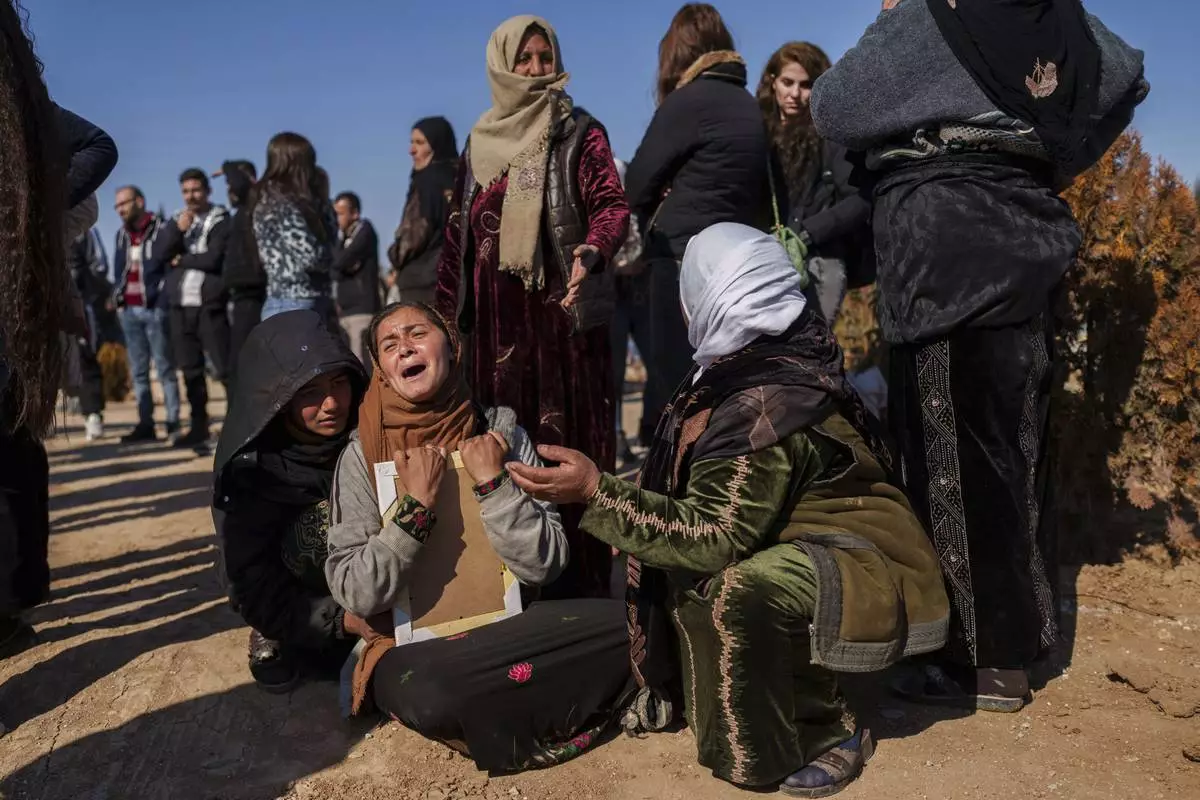
Women comfort a relative of Ibrahim al-Hamad, who was killed by a Turkish-backed militia, during the funeral of four Syrian Democratic Forces fighters in northeastern the village of Daoudiya, Wednesday, Jan. 29, 2025. (AP Photo/Bernat Armangue)


